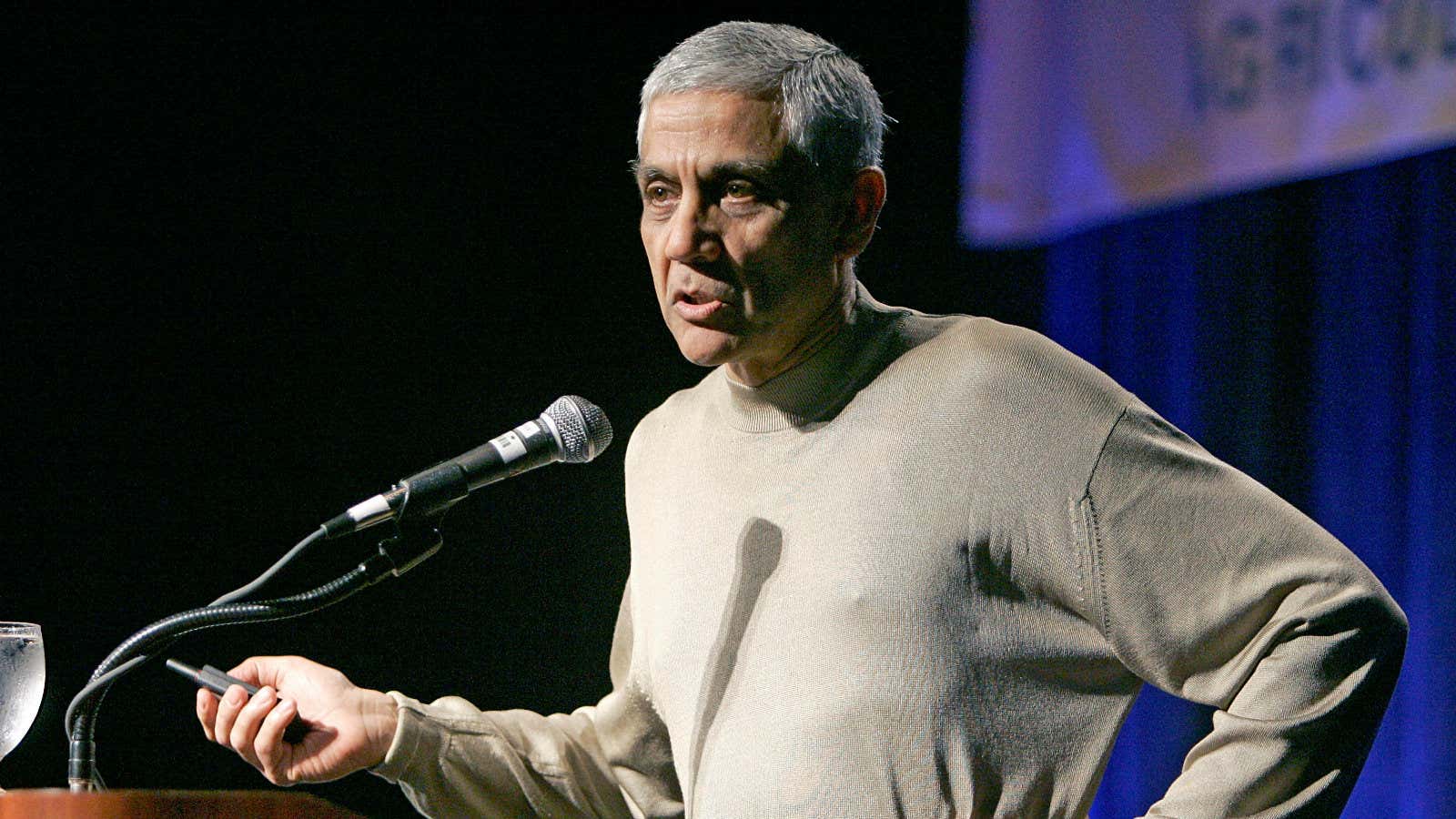Count Vinod Khosla among the critics of a liberal arts education. The billionaire venture capitalist who co-founded Sun Microsystems took to Medium—in 6,000 words!—to explain its flaws, and to agitate for something he calls “liberal science” education. The exit exam for undergraduates under his new educational model is simple: “At the end of an undergraduate education, is a student roughly able to understand and discuss the Economist, end-to-end, every week.”
Liberal arts, of course, can include the sciences, but what he’s really attacking are the humanities, like art history, literature, and history. Khosla’s basic argument is that humanities education doesn’t adequately prepare students for the complexity of today’s world, which requires sharper analytical skills. He scoffs at claims to the contrary:
“People in the humanities fields are told that they get taught analytical skills, including how to digest large volumes of information, but I find that by and large such education is poor at imparting these skills.”
While Khosla is a fan of the Economist, he’s a tough critic of other journalism. He highlights Malcolm Gladwell’s writing as an example of the muddy thinking he says is produced without a background in the sciences (Gladwell has a degree in history). Khosla, who studied electrical engineering at the Indian Institute of Technology in New Delhi, worries that students pursuing the liberal arts are taking the easy way out. At times, he sound like a worried father who can’t understand why their child doesn’t want to join the family business: “‘Pursue your passion’ even if it increases the probability of getting you into unemployment or homelessness later is advice I have seldom agreed with.”
Khosla is far from alone in trumpeting STEM (science, technology, engineering and math) at the expense of the humanities education. Art history and philosophy majors are easy targets, and US politicians from Marco Rubio to Barack Obama have scored points at their expense. (Obama later apologized to art history majors, and Rubio’s claim that welders made more than philosophy majors was judged wrong by Politifact). In 2011, the National Governors Association encouraged its members to orient universities around workforce development, and Florida governor Rick Scott proposed shifting funding from subjects like anthropology to areas more likely to lead to job creation.
The attack on the humanities ignores the evidence that many employers actually value these degrees. Goldman Sachs hires more graduates with liberal arts and humanities backgrounds than those who study technology. And, increasingly, tech companies are realizing that humanities majors can help them better connect to customers and users, according to Forbes.
Khosla, unlike other critics of the humanities, doesn’t believe the sole purpose of a college education is to get a job. Students need to master critical thinking to be more effective citizens, and question what they read and hear. He even allows that some students should study literature and history. Just not in college.
